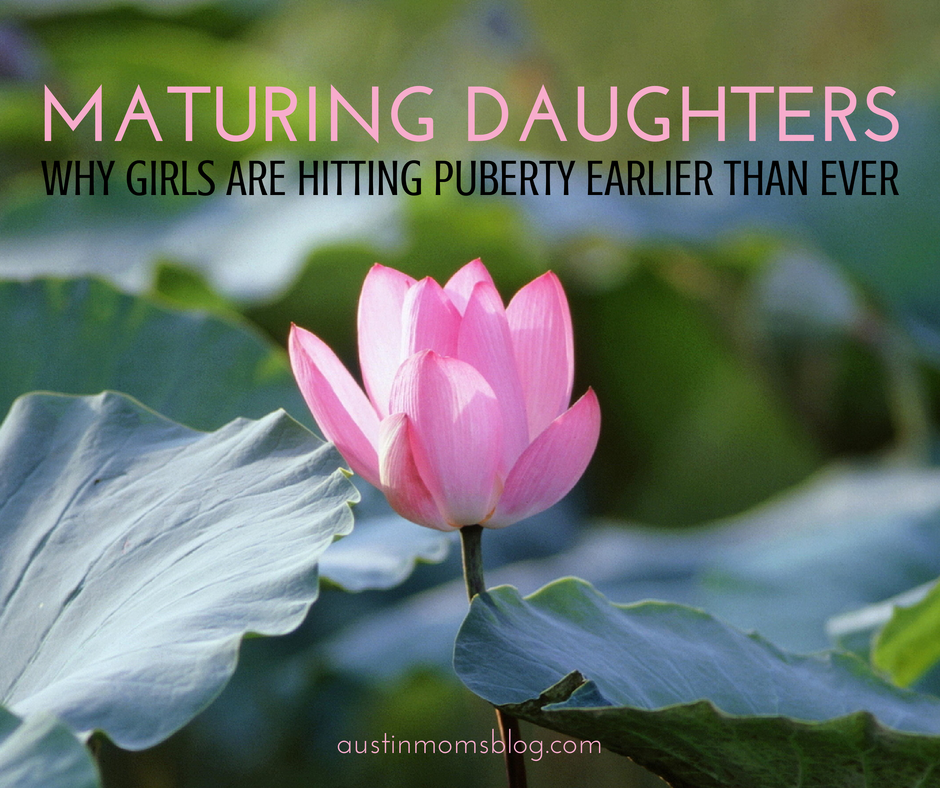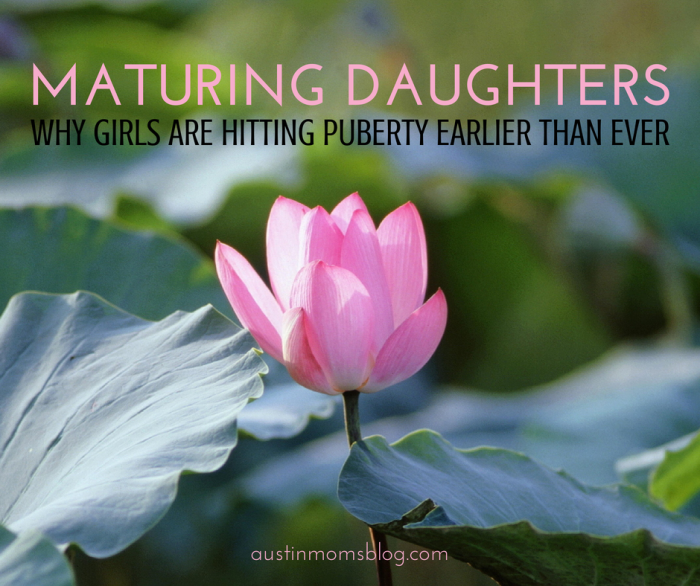As a mother of three girls, it scares me to death when I see study after study about girls hitting puberty much earlier these days. (And just to clarify, hitting puberty is defined as breast development, not the start of menstruation.)
I’ve seen signs in my own daughters of things happening that weren’t even on my mom-radar yet…and weren’t supposed to be for at least a few more years! Most studies attribute this to several common factors, environmental and dietary factors being the most alarming. While there are most likely a combination of causes rather than one defining culprit, it’s imperative that we as moms are informed about this potentially dramatic shift in our daughters’ futures so that we can be prepared to help them through it.
What research is finding:
-About 15% of American girls begin puberty by the age of 7, and 30% by the age of 8.
-The clearest influence of puberty is obesity.
-Higher protein, dairy, and soft drinks have been associated with early puberty.
-Our chemical-laced environment messes with our hormones, such as pesticides, flame retardants, perfume, phthalates, BPA (which mimics estrogen), etc.
-Family stress may also play a role in the start of puberty.
Why is this troublesome?
The most significant and alarming consequence of early maturation is an increased risk for breast cancer in adulthood. Early menarche (puberty) is an established risk factor for breast cancer, and this is believed to be due to the extended lifetime exposure to ovarian hormones. Similarly, exposure to EDCs (chemicals) during childhood is associated with hormonal cancers, such as breast and testicular cancers.
Seven, eight and nine year old girls are not emotionally or psychologically equipped to handle puberty. As such, earlier puberty is also associated with a higher risk of psychological problems during adolescence such as anxiety, depression, and eating disorders. Girls who mature earlier are also more likely to take part in risky behaviors like smoking and alcohol use. {source}
While these types of studies will continue to emerge and evolve, it’s critical that we do our own research as well…because after all, who knows our daughters better than their moms? To further educate yourself and explore what can be done to counteract this trend, check out these helpful articles HERE, HERE, and HERE.











